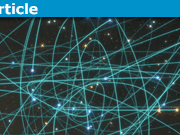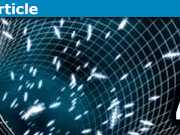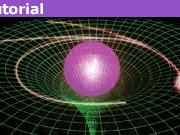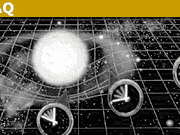PF’s policy on Lorentz Ether Theory and Block Universe
What is the PF’s policy on Lorentz Ether Theory and Block Universe?
Debates about the superiority or “truth” of modern Lorentz Ether Theory (LET) and the Block Universe (BU) concept are outside the scope of PF because:
- There is little or no debate among professional physicists about these issues (as opposed to e.g. interpretations of quantum mechanics)
- Positions on these issues are based on personal philosophical preferences and cannot be addressed (even in principle) by experiment.
The core of a scientific theory is a mathematical model which can be used to predict the outcome of experiments, i.e. in addition to the model, there is a mapping between elements of the model and outcomes of experiments. This mapping is sometimes called the “minimal interpretation”. Scientifically, theories are judged on how complicated their mathematical models are and on how well they predict the outcomes of experiments, with the best models being both simple and applying to a wide variety of phenomena.
There is often a desire by the philosophical community to add more structure to a scientific theory than what is represented by the “mathematical model and minimal interpretation” described above. These structures are also generically called “interpretations”, and are most prolific in the field of quantum mechanics. Interpretations typically include some postulates which can be used to justify the mathematical model, as well as some statements about which items in the derived model are “real” and which are measurement artifacts or limitations on our knowledge.
Often a single theory is compatible with many different philosophical interpretations. There is no possible way to resolve a dispute between different philosophical interpretations through appeal to experiment because all of them make the same predictions for all experiments. The choice between philosophical interpretations is therefore entirely a matter of personal philosophical preference.
For special relativity (SR), the mathematical model is the Minkowski space, a four-dimensional pseudo-Euclidean affine manifold. The symmetry group determining this structure is the proper orthochronous Poincaré (or inhomogeneous Lorentz) group which includes the Lorentz transform.
There are two primary philosophical interpretations: the Block Universe (BU) and Lorentz Aether Theory (LET). The BU considers the universe to exist as a single fixed 4D geometric structure that is not dynamically evolving over time since time is one of the dimensions of the structure. The LET considers the universe to be a 3D world evolving over time and with a single undetectable “true” rest frame.
Both BU and LET use the Lorentz transform, etc., to make all of their experimental predictions, and therefore they are scientifically indistinguishable, making the same experimental predictions in all cases. Because of this experimental equivalence, there is little if any serious ongoing debate between the two in professional physics circles (although the philosophy literature does have ongoing debate). Professional physicists are generally content with minimal interpretation and uninterested in philosophical interpretations.
Because there is little debate among modern scientists on this topic, and because such debates cannot be settled by appeal to experiment, and because such debates tend to degenerate into acrimonious and repetitive shouting matches, and because discussions of LET tend to attract crackpots, it is the policy of the PF Mentors who moderate the relativity forum that threads attempting to argue the superiority or veracity of either BU or LET will be closed with reference to this FAQ.
Education: PhD in biomedical engineering and MBA
Interests: family, church, farming, martial arts








[QUOTE=”stevendaryl, post: 5239086, member: 372855″]So when a physicist dismissively says: “That’s not science, that’s metaphysics!”, he’s engaging in metaphysics[/QUOTE]
Yes. And once again, “metaphysics” should not be understood in a derogative sense.
[QUOTE=”Demystifier, post: 5239082, member: 61953″][I]When you systematically collect empirical data on nature and compare them with testable theoretical predictions, that’s science. When you [B]say[/B] that this is what science is, that’s philosophy, or more precisely – meta-science.[/I][/QUOTE]
So when a physicist dismissively says: “That’s not science, that’s metaphysics!”, he’s engaging in metaphysics
[QUOTE=”vanhees71, post: 5239059, member: 260864″]LOL. You got me! It’s philosophy, but then even the rules of this forum are philosophy and thus contradict their own rules in stating them. A real Russelian logical dilemma, I’d say, and that’s not philosophy, but mathematical logics, and math is no longer considered philosophy, but a “structural science”, and I’d say that structural sciences (math, informatics) should be admitted topics in this forum, because you can’t do physics without math ;-)).[/QUOTE]
Well, some mathematicians think that mathematical logic is not a part of proper mathematics, but is something more like philosophy. Indeed, experts in mathematical logic themselves often call it meta-mathematics. To them, it does not sound so derogative as meta-physics sounds to physicists.
But speaking of mathematical logic (or meta-mathematics), the Godel’s first incompleteness theorem is kind of useful to resolve our dilemma about physics. The theorem demonstrates that some questions which are relevant within a system cannot be answered within the same system. Instead, one must use arguments from outside the system. Likewise, to say what is and what is not physics, one must step outside of physics, which means to use philosophy, or more precisely – meta-physics (in a non-derogative sense).
The same message can also be succintly expressed in the following slightly more general way:
[I]When you systematically collect empirical data on nature and compare them with testable theoretical predictions, that’s science. When you [B]say[/B] that this is what science is, that’s philosophy, or more precisely – meta-science.[/I]
[QUOTE=”vanhees71, post: 5238978, member: 260864″]You have, of course a point, here, which is physical again. The question is, whether the BU or Lorentz aether theory are really different physical models or mere philosophical interpretations of (special or general) relativity. In the former case, there must be predictions for observable facts about nature, that can decide between the one or the other (spacetime) model, and then it’s physics. In the latter case, it’s a personal decision, which philosophical or metaphysical interpretation I follow, because the models are all equivalent to relativity. Then it is not (and imho should not be) an allowed topic in these forums![/QUOTE]
Well, I made the point earlier (although it didn’t receive any replies–sniff) that even when two interpretations/models are exactly equivalent as far as testable predictions, they can have extensions that are inequivalent. So understanding alternative models can be important in coming up with new theories. For that reason, I think that a practicing theoretical physicist should be aware of alternative interpretations.
LOL. You got me! It’s philosophy, but then even the rules of this forum are philosophy and thus contradict their own rules in stating them. A real Russelian logical dilemma, I’d say, and that’s not philosophy, but mathematical logics, and math is no longer considered philosophy, but a “structural science”, and I’d say that structural sciences (math, informatics) should be admitted topics in this forum, because you can’t do physics without math ;-)).
Is the statement [QUOTE=”vanhees71, post: 5238978, member: 260864″]You have, of course a point, here, which is physical again. The question is, whether the BU or Lorentz aether theory are really different physical models or mere philosophical interpretations of (special or general) relativity. In the former case, there must be predictions for observable facts about nature, that can decide between the one or the other (spacetime) model, and then it’s physics. In the latter case, it’s a personal decision, which philosophical or metaphysical interpretation I follow, because the models are all equivalent to relativity. Then it is not (and imho should not be) an allowed topic in these forums![/QUOTE] physics or philosophy?
[QUOTE=”vanhees71, post: 5238978, member: 260864″]If it’s philosophy and not physics (or math relevant to describe the physics), it is not (and imho it should not) be a topic in this forum. I’m sure there are forums for philosophers available in the WWW, and if I’d want to discuss philosophy I’d try to find one via google. This forum is a unique place in the WWW in that it is very well moderated, and the crackpot noise is thus very low. Philosophical discussions, particularly like the implications of the fact that the spacetime structure of the world is way better discribed by relativistic spacetime models than Newtonian ones, triggers crackpot discussions, and that’s why I’m very thankful for the great works our moderators do here to keep the forum clean from crackpotery.
You have, of course a point, here, which is physical again. The question is, whether the BU or Lorentz aether theory are really different physical models or mere philosophical interpretations of (special or general) relativity. In the former case, there must be predictions for observable facts about nature, that can decide between the one or the other (spacetime) model, and then it’s physics. In the latter case, it’s a personal decision, which philosophical or metaphysical interpretation I follow, because the models are all equivalent to relativity. Then it is not (and imho should not be) an allowed topic in these forums![/QUOTE]
Vanhees, you seem very confident when you make statements of the form “this is physics and that is philosophy”. It would be great if you could give a general criterion how to distinguish between them. That would solve many problems of this forum.
[QUOTE=”JDoolin, post: 5238232, member: 268035″]it is philosophy, rather than math, that directs our behavior–decides what is interesting, important, or good.[/QUOTE]
That’s a good point! (Which I decided by philosophy.)
If it’s philosophy and not physics (or math relevant to describe the physics), it is not (and imho it should not) be a topic in this forum. I’m sure there are forums for philosophers available in the WWW, and if I’d want to discuss philosophy I’d try to find one via google. This forum is a unique place in the WWW in that it is very well moderated, and the crackpot noise is thus very low. Philosophical discussions, particularly like the implications of the fact that the spacetime structure of the world is way better discribed by relativistic spacetime models than Newtonian ones, triggers crackpot discussions, and that’s why I’m very thankful for the great works our moderators do here to keep the forum clean from crackpotery.
You have, of course a point, here, which is physical again. The question is, whether the BU or Lorentz aether theory are really different physical models or mere philosophical interpretations of (special or general) relativity. In the former case, there must be predictions for observable facts about nature, that can decide between the one or the other (spacetime) model, and then it’s physics. In the latter case, it’s a personal decision, which philosophical or metaphysical interpretation I follow, because the models are all equivalent to relativity. Then it is not (and imho should not be) an allowed topic in these forums!
[QUOTE=”DaleSpam, post: 5236859, member: 43978″]Did you read the article? [..] [/QUOTE]
I understand him to mean that he wrote it.
[QUOTE=”vanhees71, post: 5237069, member: 260864″]Landau and Lifshitz as well as Weinberg all stick to physics. I want to separate off philosophical debates from the physics part of the quantum forum. That’s of course difficult, because you cannot draw a sharp boarderline between the two realms, and I guess we should open another thread about this debate. [..][/QUOTE]
Continuation of that discussion about quantum physics would indeed belong to another thread, even in a different forum. Just a little remark about definitions: I reckon interpretations as an important part of explanations, and therefore as definitely belonging to physics. What you call “sticking to physics” I would call “sticking to discussions about predictions”. Probably everyone will be on the same wavelength when formulated like that.
[QUOTE=”atyy, post: 5237103, member: 123698″]One of the pleasures of being a neurobiologist is that I get to talk to many physicists, and discuss things like the subtle differences in how L&L and Cohen-Tannoudji, Diu and Laloe present Copenhagen.[/QUOTE]
I think being neurobiologist is not essential for this. Speaking of Laloe, I think he wrote the best technical book specialized [B]strictly[/B] in conceptual aspects of QM:
[URL]http://www.amazon.com/Do-Really-Understand-Quantum-Mechanics/dp/110702501X[/URL]
OK, let’s not make a referendum on QM interpretations or books.
Yes, we can ban all books except L&L and Weinberg :) Maybe Cohen-Tannoudji might be allowed, because they have a very subtle discussion of the interpretation of collapse. One of the pleasures of being a neurobiologist is that I get to talk to many physicists, and discuss things like the subtle differences in how L&L and Cohen-Tannoudji, Diu and Laloe present Copenhagen.
[QUOTE=”vanhees71, post: 5237083, member: 260864″]Yes, and this is a debate on the physics interpretation, not on philosophy.[/QUOTE]
I am glad that you think so, but then, if Sec. 3.7 of Weinberg is physics rather than philosophy, then most of interpretational discussions on this forum are also physics rather than philosophy. Or to put it in different words, if you give Sec. 3.7 to physicists without telling them that it was written by Weinberg, I would bet that most of them would say that it was more philosophy than physics.
LOL, you got me, but I admit that I like Ballentines book very much and I’m a clear proponent of the minimal interpretation. There’s Born’s rule, and that’s it. It’s an additional postulate you have to live with. Maybe there’s a future theory that derives it from something simpler, but that’s not there yet, and this is what Weinberg concludes in his book. Admittedly the interpretational chapter in Weinberg’s book is way better than the lengthy interpretational part in Ballentine’s :-).
[QUOTE=”vanhees71, post: 5237069, member: 260864″]Landau and Lifshitz as well as Weinberg all stick to physics. I want to separate off philosophical debates from the physics part of the quantum forum. That’s of course difficult, because you cannot draw a sharp boarderline between the two realms, and I guess we should open another thread about this debate.[/QUOTE]
L&L begin with interpretation. They are brief but to the point. Weinberg also begins with interpretation.
But there is one upside to banning interpretation. We’d have to ban Ballentine, who spend pages and pages on interpretation and gets it completely wrong. :biggrin:
[QUOTE=”vanhees71, post: 5237069, member: 260864″]I don’t know to which Wilson you are referring to. Do you mean Kenneth Wilson and his renormalization group. That’s also (in fact very important) physics, but not an interpretational issue at all. Admittedly it brought renormalization theory from a mathematical trick (Feynman once said something like “sweeping the garbage under the rug”) to a physical insight and an application to the field of many-body QFT and the physics of phase transitions, where it is still a very hot topic (and becomes even hotter for quite a while recently).[/QUOTE]
Yes, I mean Kenneth Wilson. His contribution was to the interpretation of QFT. His insight changed renormalization from an unmathematical trick to a physical argument.
Yes, and this is a debate on the physics interpretation, not on philosophy. BTW it’s one of the best QM books, I’ve ever seen (but that’s true for all textbooks by Weinberg; very close to the physics without unnecessary mathematical and philosophical balast).
[QUOTE=”vanhees71, post: 5237069, member: 260864″]Weinberg all stick to physics[/QUOTE]
I think atty meant this book
[URL]http://www.amazon.com/Lectures-Quantum-Mechanics-Steven-Weinberg/dp/1107028728[/URL]
which does contain a discussion of interpretational issues (Sec. 3.7). In particular Weinberg claims explicitly that (in his opinion) Copenhagen interpretation doesn’t make sense.
Landau and Lifshitz as well as Weinberg all stick to physics. I want to separate off philosophical debates from the physics part of the quantum forum. That’s of course difficult, because you cannot draw a sharp boarderline between the two realms, and I guess we should open another thread about this debate.
I don’t know to which Wilson you are referring to. Do you mean Kenneth Wilson and his renormalization group. That’s also (in fact very important) physics, but not an interpretational issue at all. Admittedly it brought renormalization theory from a mathematical trick (Feynman once said something like “sweeping the garbage under the rug”) to a physical insight and an application to the field of many-body QFT and the physics of phase transitions, where it is still a very hot topic (and becomes even hotter for quite a while recently).
[QUOTE=”vanhees71, post: 5237044, member: 260864″]Well, it is still my dream to split the quantum forum into separate physics and interpretation parts. This would be great![/QUOTE]
I think it is dangerous and counter to good physics. Good physics starts with interpretation. Among the books in this tradition are Landau and Lifshitz and Weinberg.
Another example is Wilson’s contribution. It is true that Wilson’s contribution was in large part calculational, but his stature would not be so great if it were not for his interpretational contributions. Before Wilson we did not understand QED although it was already known to be the most accurate theory we have. After Wilson, we understand QED.
And this is not counter to the spirit behind the ban on LET versus block universe (for classical physics). In that case, interpretation is important, but it is already settled and understood, and discussed in standard references like Rindler.
[QUOTE=”Demystifier, post: 5235953, member: 61953″]I agree. But one cannot become aware of these if one bans discussions about interpretations.[/QUOTE]
Well, it is still my dream to split the quantum forum into separate physics and interpretation parts. This would be great!
[QUOTE=”Demystifier, post: 5236732, member: 61953″]So, shell we allow discussions about Einstein aether? If yes, then I will make no further complaints in this thread.
It’s not that I particularly like Einstein aether. (As a matter of fact, I like block universe much more [URL]http://fqxi.org/community/forum/topic/259[/URL] .)
It’s that I generally don’t like banning.[/QUOTE]Did you read the article? It doesn’t even discuss Einstein aether, just LET and block universe, which are non gravitational theories. Also, discussions of LET and block universe are not banned, only assertions that one or the other is “true”.
[QUOTE=”DaleSpam, post: 5236509, member: 43978″]Note that the vast majority of those never made it through peer review in a reputable journal.[/QUOTE]
[QUOTE=”Demystifier, post: 5236723, member: 61953″]Do you still stand with your claim above?[/QUOTE]No, I don’t. My claim was based on a biased sample.
I do stand by the original claim in the article that there is “little or no debate”. The search you did is not particularly relevant since it contains many theories that are not LET but have the word aether in them.
And even so, even the inflated total “aether” number of 42 is still small. Professional science has simply moved on past the LET vs block universe argument.
[QUOTE=”DaleSpam, post: 5236503, member: 43978″]That is a good idea. Most of those threads end in a closure and/or a ban. If you remember one that didn’t end like that then it might be a good one to point to.[/QUOTE]
I think that they all were closed, for obvious reasons; a thread being closed to further discussion doesn’t mean that it is void of useful information!
[QUOTE=”DaleSpam, post: 5236561, member: 43978″]As you say, Einstein aether is not relevant to LET. Of the ones in peer reviewed journals, not one of the first 10 was actually about LET. “Little or no debate” is looking pretty well substantiated.[/QUOTE]
So, shell we allow discussions about Einstein aether? If yes, then I will make no further complaints in this thread.
It’s not that I particularly like Einstein aether. (As a matter of fact, I like block universe much more [URL]http://fqxi.org/community/forum/topic/259[/URL] .)
It’s that I generally don’t like banning.
[QUOTE=”DaleSpam, post: 5236509, member: 43978″]Note that the vast majority of those never made it through peer review in a reputable journal.[/QUOTE]
To check this claim, I have done the actual counting. I have discarded the first 10 papers because they are still relatively new, so some of them may become accepted for publication later. The result of my counting is:
[I]Out of 68 papers having “aether” in the title, 42 are published in a peer reviewed journal.[/I]
Do you still stand with your claim above? Or do you want me count the number of papers in reputable journals such as Phys. Rev. D, Phys. Lett. B, etc?
EDIT: Now I saw that atty also made the counting.
As you say, Einstein aether is not relevant to LET. Of the ones in peer reviewed journals, not one of the first 10 was actually about LET. “Little or no debate” is looking pretty well substantiated.
My own take is that Einstein-Aether is not relevant to the OP. It’s a pretty standard Beyond the Standard Model topic (like string theory, LQG).
I saw your post #17, but here is the count anyway.
Not published in peer-reviewed journal
[URL]http://lanl.arxiv.org/abs/1508.00276[/URL]
[URL]http://lanl.arxiv.org/abs/1507.06618[/URL]
[URL]http://lanl.arxiv.org/abs/1412.2778[/URL]
[URL]http://lanl.arxiv.org/abs/1311.0437[/URL]
[URL]http://lanl.arxiv.org/abs/1310.2144[/URL]
[URL]http://lanl.arxiv.org/abs/1309.0907[/URL]
[URL]http://lanl.arxiv.org/abs/1109.5654[/URL]
[URL]http://lanl.arxiv.org/abs/1105.4845[/URL]
[URL]http://lanl.arxiv.org/abs/1102.5002[/URL]
[URL]http://lanl.arxiv.org/abs/1012.5348[/URL]
[URL]http://lanl.arxiv.org/abs/1004.2901[/URL]
[URL]http://lanl.arxiv.org/abs/1003.5366[/URL]
[URL]http://lanl.arxiv.org/abs/0801.1547[/URL]
[URL]http://lanl.arxiv.org/abs/0711.3822[/URL]
[URL]http://lanl.arxiv.org/abs/gr-qc/0412086[/URL]
[URL]http://lanl.arxiv.org/abs/gr-qc/0410001[/URL]
[URL]http://lanl.arxiv.org/abs/hep-ph/0109215[/URL]
Published in peer-reviewed journal
[URL]http://lanl.arxiv.org/abs/1504.03305[/URL], [URL]http://iopscience.iop.org/article/10.1088/1475-7516/2015/08/016/meta[/URL]
[URL]http://lanl.arxiv.org/abs/1503.08911[/URL]
[URL]http://lanl.arxiv.org/abs/1409.2687[/URL]
[URL]http://lanl.arxiv.org/abs/1408.4774[/URL]
[URL]http://lanl.arxiv.org/abs/1407.6014[/URL]
[URL]http://lanl.arxiv.org/abs/1312.0405[/URL]
[URL]http://lanl.arxiv.org/abs/1311.7144[/URL]
[URL]http://lanl.arxiv.org/abs/1310.5338[/URL]
[URL]http://lanl.arxiv.org/abs/1310.5115[/URL]
[URL]http://lanl.arxiv.org/abs/1309.4778[/URL]
[URL]http://lanl.arxiv.org/abs/1302.6965[/URL] (not a journal, but edited by Ashtekar and Petkov)
[URL]http://lanl.arxiv.org/abs/1302.4189[/URL]
[URL]http://lanl.arxiv.org/abs/1301.7122[/URL]
[URL]http://lanl.arxiv.org/abs/1211.4402[/URL]
[URL]http://lanl.arxiv.org/abs/1210.4940[/URL]
[URL]http://lanl.arxiv.org/abs/1207.6530[/URL]
[URL]http://lanl.arxiv.org/abs/1206.6296[/URL]
[URL]http://lanl.arxiv.org/abs/1201.2882[/URL]
[URL]http://lanl.arxiv.org/abs/1110.3753[/URL]
[URL]http://lanl.arxiv.org/abs/1109.4495[/URL]
[URL]http://lanl.arxiv.org/abs/1109.0823[/URL]
[URL]http://lanl.arxiv.org/abs/1108.1835[/URL]
[URL]http://lanl.arxiv.org/abs/1107.1892[/URL]
[URL]http://lanl.arxiv.org/abs/1106.3955[/URL]
[URL]http://lanl.arxiv.org/abs/1104.2889[/URL]
[URL]http://lanl.arxiv.org/abs/1103.2197[/URL]
[URL]http://lanl.arxiv.org/abs/1011.6466[/URL]
[URL]http://lanl.arxiv.org/abs/1008.4351[/URL]
[URL]http://lanl.arxiv.org/abs/1007.4572[/URL]
[URL]http://lanl.arxiv.org/abs/1007.2594[/URL]
[URL]http://lanl.arxiv.org/abs/1003.1283[/URL]
[URL]http://lanl.arxiv.org/abs/1001.4823[/URL]
[URL]http://lanl.arxiv.org/abs/0907.3180[/URL]
[URL]http://lanl.arxiv.org/abs/0905.2446[/URL]
[URL]http://lanl.arxiv.org/abs/0905.0328[/URL]
[URL]http://lanl.arxiv.org/abs/0812.1050[/URL]
[URL]http://lanl.arxiv.org/abs/0811.2797[/URL]
[URL]http://lanl.arxiv.org/abs/0807.2639[/URL]
[URL]http://lanl.arxiv.org/abs/0806.4319[/URL]
[URL]http://lanl.arxiv.org/abs/0805.4067[/URL]
[URL]http://lanl.arxiv.org/abs/0802.0521[/URL]
[URL]http://lanl.arxiv.org/abs/0801.0516[/URL], [URL]http://link.springer.com/article/10.1007%2Fs10714-008-0648-y[/URL]
[URL]http://lanl.arxiv.org/abs/0709.1011[/URL]
[URL]http://lanl.arxiv.org/abs/0706.0704[/URL]
[URL]http://lanl.arxiv.org/abs/0705.1565[/URL]
[URL]http://lanl.arxiv.org/abs/gr-qc/0703093[/URL]
[URL]http://lanl.arxiv.org/abs/gr-qc/0608052[/URL]
[URL]http://lanl.arxiv.org/abs/gr-qc/0605082[/URL]
[URL]http://lanl.arxiv.org/abs/gr-qc/0604088[/URL]
[URL]http://lanl.arxiv.org/abs/gr-qc/0603058[/URL]
[URL]http://lanl.arxiv.org/abs/gr-qc/0602004[/URL]
[URL]http://lanl.arxiv.org/abs/gr-qc/0509121[/URL]
[URL]http://lanl.arxiv.org/abs/gr-qc/0507059[/URL]
[URL]http://lanl.arxiv.org/abs/hep-ph/0505211[/URL]
[URL]http://lanl.arxiv.org/abs/gr-qc/0504005[/URL]
[URL]http://lanl.arxiv.org/abs/gr-qc/0502066[/URL]
[URL]http://lanl.arxiv.org/abs/gr-qc/0402005[/URL]
[URL]http://lanl.arxiv.org/abs/hep-th/0108097[/URL]
Even if all of the remaining ones went to peer reviewed journals, that would only be a total of 70 since arXiv started. In a field that publishes as much as theoretical physics does, that certainly qualifies as “little or no debate”. It is a small sideshow at best.
[QUOTE=”DaleSpam, post: 5236523, member: 43978″]Of the first ten I saw only two that even made it out of arXiv somewhere.[/QUOTE]
If you took the first ten most recent, they would have had less time to have been peer-reviewed. Also, some of them are almost certainly correct despite not being peer-reviewed, eg. [URL]http://lanl.arxiv.org/abs/1404.7689[/URL] is not peer-reviewed, but is commented on in a way by [URL]http://lanl.arxiv.org/abs/1405.6351[/URL] that makes me think it is probably correct, because of Ted Jacobson’s general reputation.
But let me count.
Of the first ten I saw only two that even made it out of arXiv somewhere.
[QUOTE=”DaleSpam, post: 5236509, member: 43978″]Note that the vast majority of those never made it through peer review in a reputable journal.[/QUOTE]
Hmmm, randomly clicking on them, it seems many did. Did you count?
Edit: Also some like [URL]http://lanl.arxiv.org/abs/0801.0516[/URL] which don’t have a journal listed have been published in peer-reviewed journals [URL]http://link.springer.com/article/10.1007%2Fs10714-008-0648-y[/URL].
[QUOTE=”stevendaryl, post: 5235977, member: 372855″]However, every theory that we have is tentative and incomplete–we expect that one day, our current theories will be replaced by new theories.[/QUOTE]
That is an interpretation! :smile:
Of course, it’s the correct one. o0)
[QUOTE=”Demystifier, post: 5235862, member: 61953″]Certainly much less than interpretations of QM, but how much exactly? Let us see
[URL]http://lanl.arxiv.org/find/gr-qc/1/ti:+aether/0/1/0/all/0/1[/URL] (aether = 78)[/QUOTE]Note that the vast majority of those never made it through peer review in a reputable journal.
[QUOTE=”harrylin, post: 5235929, member: 293502″] it will be helpful if some links to the wealth of available information in the PF archives is added at the bottom of that post.[/QUOTE]That is a good idea. Most of those threads end in a closure and/or a ban. If you remember one that didn’t end like that then it might be a good one to point to.
[QUOTE=”stevendaryl, post: 5235977, member: 372855″]I’m not actually very hopeful that such a thing will happen in the case of LET, but I do believe that it is doing a disservice to physicists to say absolutely that they should never think about interpretations, because thinking about them could very well be the way to develop future theories.[/QUOTE]
On the other hand, the charter for Physics Forums declares that it is for discussing existing theories, rather than developing new ones, so maybe my argument is not so relevant here.
[QUOTE=”eltodesukane, post: 5235767, member: 394501″]”Often a single theory is compatible with many different philosophical interpretations. There is no possible way to resolve a dispute between different philosophical interpretations through appeal to experiment because all of them make the same predictions for all experiments. The choice between philosophical interpretations is therefore entirely a matter of personal philosophical preference.”
In that case, philosophical interpretations are unnecessary, superfluous, irrelevant.[/QUOTE]
I think that conclusion is a little bit of an exaggeration. A theory (in the operational sense of a mathematical way of generating testable predictions from observable initial conditions) might have multiple interpretations that are indistinguishable from within that theory. However, every theory that we have is tentative and incomplete–we expect that one day, our current theories will be replaced by new theories. The expectation, of course, is that new theories will have older theories as limiting cases, in the way that Newtonian physics can be seen as a kind of limit of special relativity, approximately valid in the case where all objects are traveling at nonrelativistic speeds. Even though interpretations might be irrelevant to a [I]current [/I]theory, different interpretations of a theory can suggest different ways to extend that theory. To get back to Lorentz aether theory: it’s indistinguishable from SR. However, one could imagine extending LET to a new theory LET’, that is inconsistent with SR, but would still reproduce the predictions of SR in limiting cases.
I’m not actually very hopeful that such a thing will happen in the case of LET, but I do believe that it is doing a disservice to physicists to say absolutely that they should never think about interpretations, because thinking about them could very well be the way to develop future theories.
[QUOTE=”Demystifier, post: 5235953, member: 61953″]I agree. But one cannot become aware of these if one bans discussions about interpretations.[/QUOTE]
There is another way; see my first reply here :wink:
[QUOTE=”harrylin, post: 5235933, member: 293502″]Mostly interpretations happen automatically in our brains: if not wittingly, then unwittingly. As a result, often an interpretation is erroneously promoted as part of the theory. To avoid such error, it is useful to be aware of these.[/QUOTE]
I agree. But one cannot become aware of these if one bans discussions about interpretations.
[QUOTE=”eltodesukane, post: 5235767, member: 394501″]”Often a single theory is compatible with many different philosophical interpretations. There is no possible way to resolve a dispute between different philosophical interpretations through appeal to experiment because all of them make the same predictions for all experiments. The choice between philosophical interpretations is therefore entirely a matter of personal philosophical preference.”
In that case, philosophical interpretations are unnecessary, superfluous, irrelevant.[/QUOTE]
Mostly interpretations happen automatically in our brains: if not wittingly, then unwittingly. As a result, often an interpretation is erroneously promoted as part of the theory. To avoid such error, it is useful to be aware of these.
This is not a “new” contribution, but for this thread I will repeat my earlier comment:
Excellent summary! :smile:
As that post was in fact the culmination of debates on this forum that started with a push to promote “block universe” as “truth”, for interested newcomers it will be helpful if some links to the wealth of available information in the PF archives is added at the bottom of that post. That will prevent unnecessary questions about where explanations about those interpretations can be found.
[QUOTE]There is little or no debate among professional physicists about these issues (as opposed to e.g. interpretations of quantum mechanics) [/QUOTE]
Certainly much less than interpretations of QM, but how much exactly? Let us see
[URL]http://lanl.arxiv.org/find/gr-qc/1/ti:+aether/0/1/0/all/0/1[/URL] (aether = 78)
[URL]http://lanl.arxiv.org/find/gr-qc/1/ti:+AND+block+universe/0/1/0/all/0/1[/URL] (block universe = 3)
" The choice between philosophical interpretations is therefore entirely a matter of personal philosophical preference."I disagree. What was the atomic theory during the 19th century? Essentially, it was only an interpretation, which has given some observed fields, like the temperature, an interpretation in terms of atomic theory. Another field-theoretic interpretation, where temperature was simply a field, was possible too, and there have been known opponents of the atomic interpretation like Mach. But would you really like to deny that atomic theory was part of physics? An important one? Even if at that time there was no experiment which would have allowed to decide if it is correct or not?
What's up with "Blockworld and its Foundational Implications" articles being published on RF startin on November 5 2015? The author seems to be promoting a POV that BU is the "correct" interpretation of SR/GR [his argument seems to be that it follows from relativity of simultaneity].
In this reasonable approximation of the universe, are the ideas behind SR treated as “so-called paradoxes; not really paradoxes, but it never comes up?” Or are the ideas behind SR treated as “so-called paradoxes, but actually principles”?
For instance, SR has “Bell’s Spaceship Paradox”, “Barn and Pole Paradox”, “The Twin Paradox”, but each of these paradoxes have explanations related to the Relativity of Simultaneity, and the explanations could just as well be called “Bell’s Spaceship Principle” the “Barn and Pole Principle” and “The Twin Principle”
My question is, then, does the Standard model embrace these explanations as principles? Or does the standard model simply regard these principles as “never coming up” because of the nature of the universe as a whole… (We don’t see space-ships with ropes tied between them. We don’t see poles going through barns at significant fractions of the speed of light. And we don’t have twins traveling to distant planets and coming back home again.)
Are the mathematics of special relativity somehow enshrined (or hidden) within the mathematics of the Einstein Field Equations? Is one idea built on the other, or are the two ideas essentially independent? Are they independent and complementary? Or are they independent and conflicting?
We really should make an honest attempt to describe all hypotheses as clearly as we can. Only when those hypotheses are clearly understood can clear distinctions be made between them. Only once those distinctions are clear can we begin testing those hypotheses against empirical evidence.I hear a lot of people talking about "misconceptions". You can't tell if something is a "misconception" unless you know the truth. If all you have is a working model, then all you can say is that "That can be correctly said of my working model." or "That cannot be correctly said of my working model." The moderators here apparently have a shared concept of the universe–and if I understand right, it is the same model that Saul Perlmutter and Brian Schmidt used in their research that got them a Nobel prize in Physics in 2011. I have come to refer to this as "the standard cosmological model"The trouble is, I have no idea how this model compares to the Block Universe model, or the LET models. I think your most important line here was "There are two primary philosophical interpretations: the Block Universe (BU) and Lorentz Aether Theory (LET). The BU considers the universe to exist as a single fixed 4D geometric structure which is not dynamically evolving over time since time is one of the dimensions of the structure. The LET considers the universe to be a 3D world evolving over time and with a single undetectable “true” rest frame."The way you've put it here, both of them seem to steer people away from thinking about the implications of the Relativity of Simultaneity on universal scales. LET theory essentially rejects the existence of the relativity of simultaneity. BU rejects that ROS has any importance, because every event can be mapped on a single space-time diagram, and all space-time diagrams are equivalent through Lorentz Transformation.Even when ideas are mathematically the same, the philosophical differences between two ideas can be important, because it is philosophy, rather than math, that directs our behavior–decides what is interesting, important, or good.
"Often a single theory is compatible with many different philosophical interpretations. There is no possible way to resolve a dispute between different philosophical interpretations through appeal to experiment because all of them make the same predictions for all experiments. The choice between philosophical interpretations is therefore entirely a matter of personal philosophical preference."In that case, philosophical interpretations are unnecessary, superfluous, irrelevant.
Nice insight!